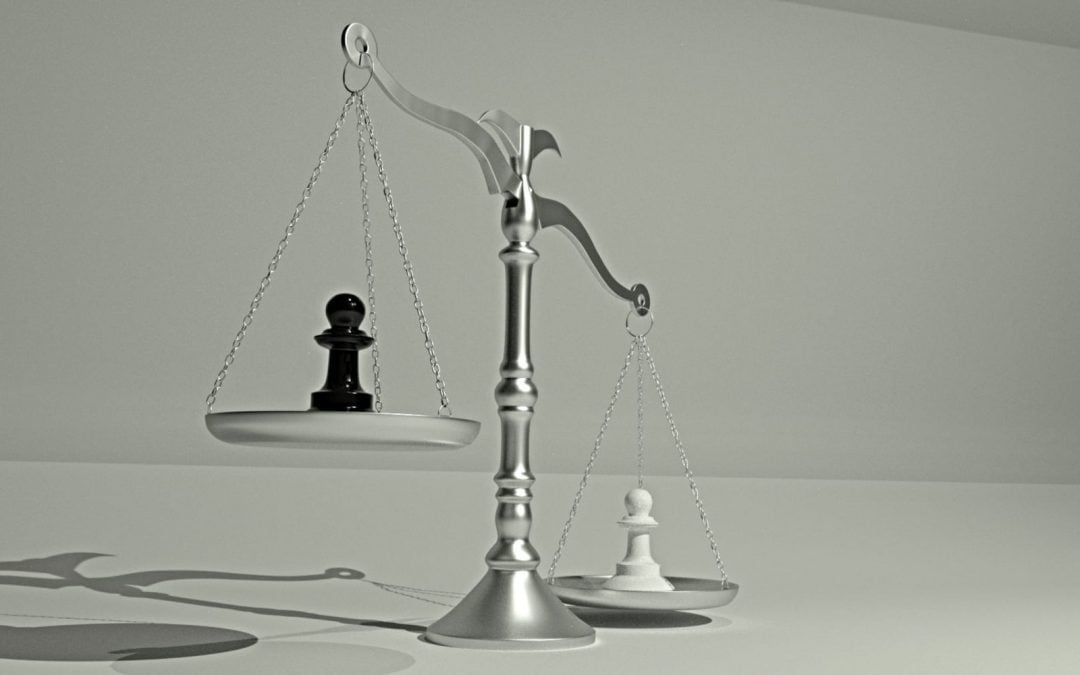The U.S. needs a good exorcism. However, naming and claiming the demon of systematic racism will take an act of God.
As a Baptist pastor of a white congregation – a clergy active in the work of redeeming communities – this demon is not only difficult to name from the pulpit but also seems impossible to exorcize in public places.
This demon came to the shores of our country almost 400 years ago, escorting the first African slave, Angela, along with her enslaved brothers and sisters, off the boats of Christendom and capitalism.
The demon has lived on this land for too long, using the power of amnesia and apathy to twist and warp the minds of individuals and entire communities.
The temptation is to vilify and victimize people based upon the malignant manipulation of the demon of racism.
The privilege for white people is that we have the luxury of individuality. We prefer to silo ourselves and the actions of others into one-dimensional lenses, seeing the world as a place of individual morality or immorality.
However, when the black community calls out a white individual using their position of power to perpetuate a systematic problem, the temptation for white people is to place everyone into binaries – two separate boxes for victims and villains.
Victims and villains show up in different ways from different perspectives. This is seen when the white cop becomes the victim of black anger or the black person becomes the villain of white rage.
Another view is when the white cop becomes the villain of black oppression or the black person becomes the victim of white supremacy.
But victims and villains are mere reflections of systematic evils that show up in the actions of individuals.
The evil of racism today is an old demon putting on a new mask, manifesting itself through dehumanizing behaviors of everyday people.
Today, naming and claiming the demon of racism is horrifying, especially when we see the haunting residue of slavery continue to play out in our society.
The reality is that white folks not only struggle naming the demon of racism, but the moment we do acknowledge a larger systemic issue in our country, we dismiss the truth by blaming the conduct of individuals as unrelated events separated from a deeper, disturbing truth.
The truth is that inappropriate behavior of people in positions of power, such as racial profiling by police officers, are merely products of a broken system that is maintained by cycles of demonic activity.
Villains and victims are created as scapegoats for status quo communities who refuse to do the hard work of naming the demon that has and continues to possess the soul of our country.
We – those in privileged positions – must first look in the mirror and name the monster before us. Then we must do the hard work of exorcism.
The demon will not leave because we choose to remain blind. No, we cannot keep our eyes closed but rather, we must choose courage, confronting the ugly truth before us.
Courageous confrontation fights against cowardly words – racist language that illuminates the blindness of privileged people.
Courageous confrontation opens our eyes and our hearts to our own embedded racism revealed through acts of white complacency and complicity.
Courageous confrontation calls us toward one united voice – a voice that cries out against the forces of evil saying, “No more! In the name of all that is good in the world, we demand the demon of racism to leave this place, to let our people go!”
If, and only when, our eyes are open and our voices are united together, the demon of systemic racism will no longer have power over us all.
Erica Whitaker is a pastor, writer, and doctoral student. She serves as Associate Director of the Institute for Black Church Studies at the Baptist Seminary of Kentucky.


